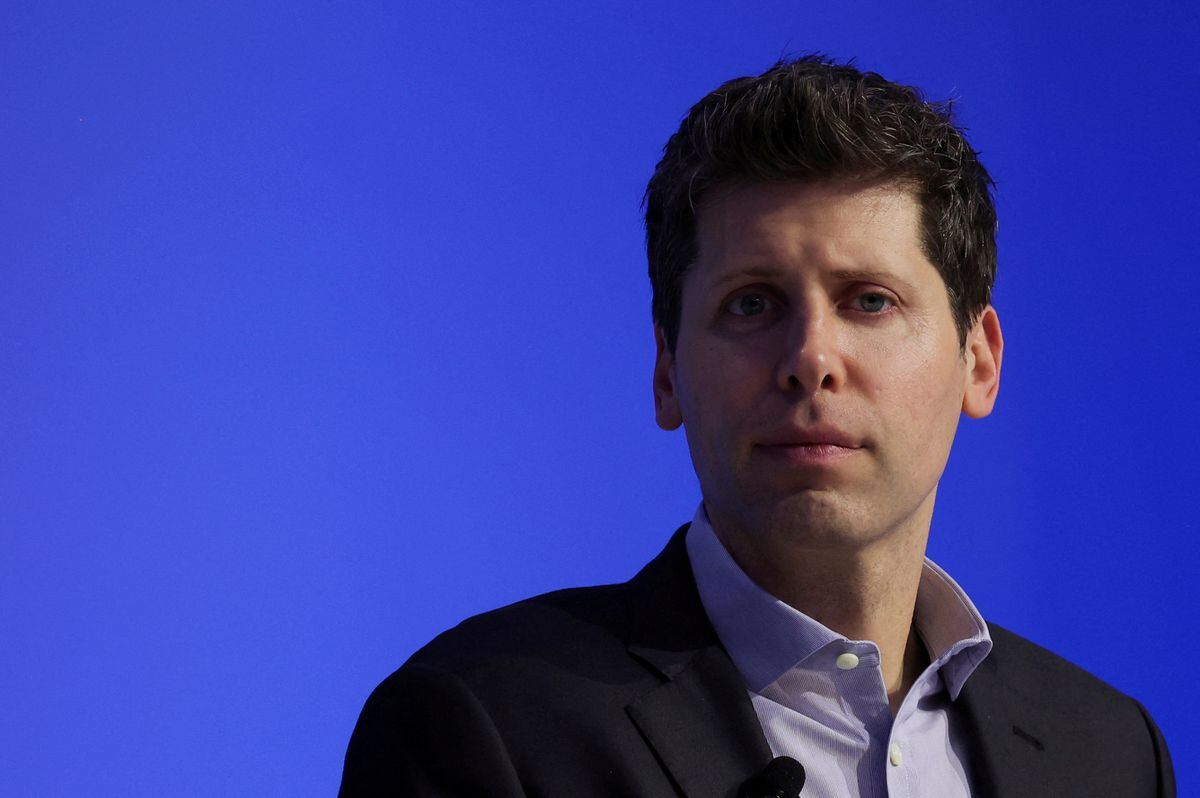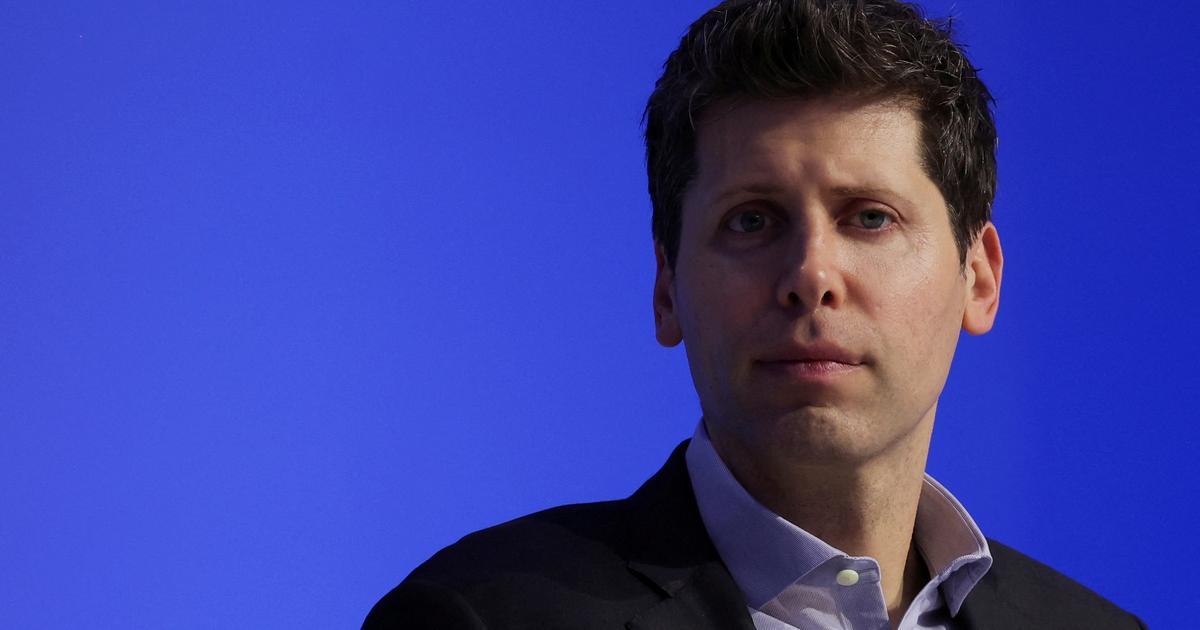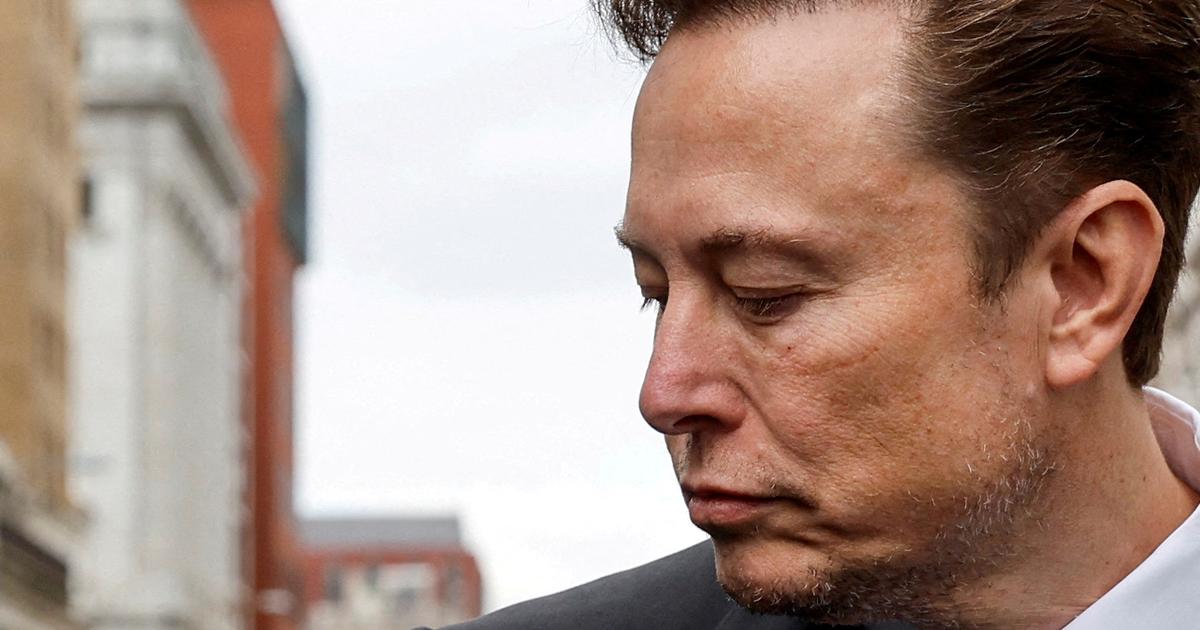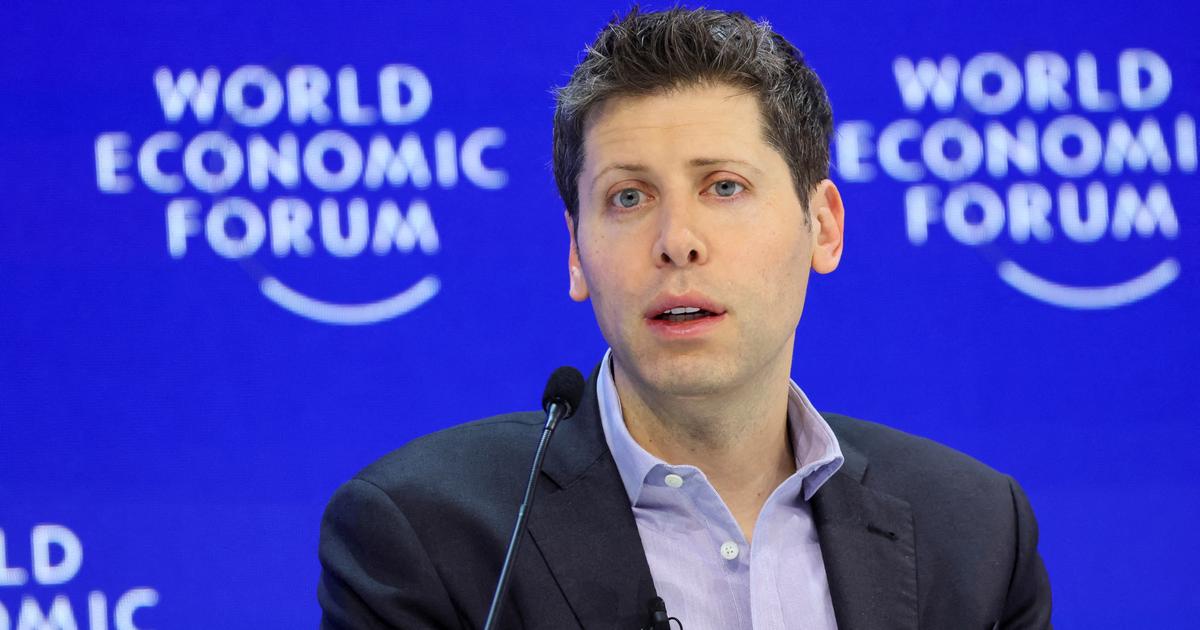Sam Altman: The head of OpenAI has warned against hasty regulation of artificial intelligence. © Lennart Preiss / TUM
Sam Altman has made a splash around the world with ChatGPT. Now he was in Munich for an acclaimed appearance at the TU – with a clear warning to politicians.
Munich – The man who is changing the whole world seems surprisingly inconspicuous: T-shirt, blue cardigan, cognac-colored dress shoes. In that look, Sam Altman would effortlessly stay under the hipster radar in any U.S. mall. But the head of the US company OpenAI can now rarely count on the grace of anonymity.
This is also revealed by his lightning visit to Munich this Thursday (25 May). When the boyish-looking Altman enters the Audimax of the Technical University of Munich (TUM) in the afternoon, cheers erupt among the more than 1000 guests, the vast majority of them students. And the appearance of the former programmer is unexpectedly reminiscent of a rock star gig.
The Altman euphoria at TUM is no longer an exception. For months, Altman and OpenAI have been causing a sensation around the world. At the latest since the boss of the US company presented the chatbot ChatGPT last November, the entrepreneur and investor has been considered the most brilliant tech thought leader in Silicon Valley - and OpenAI as the hottest company on the planet.
OpenAI: ChatGPT is becoming the fastest-growing application in history
Founded in 2015, the San Francisco-based software company specializes in the development of artificial intelligence (AI). With AI, developers are trying to teach computers to think humanly. To do this, they feed computer farms with unimaginable amounts of data and help them find conspicuous patterns and then derive the right answers.
The results are often astounding. For example, ChatGPT can list the best restaurants in Puglia, explain climate change in the style of a Shakespearean poem or provide correct diagnoses of rare diseases when the most important key data on the course of the disease are available. In the meantime, more and more pupils and students are using the bot via prompts - i.e. input commands - for their homework.
It's no wonder that interest in the AI application is exploding. Just two months after its premiere, ChatGPT already had 100 million users. This makes the bot the fastest growing application in history. And that's probably just the beginning.
Artificial intelligence on the march to victory
But the possible applications for the new technology are almost limitless. This does not only apply to classic user questions about the best baker at the holiday destination. AI has long been used in completely different fields. Countless media companies are examining how they can use AI in their day-to-day editorial work. In addition, marketing companies use the technology to tailor advertising messages to individual users. The U.S. specialist Casetext provides AI solutions to help law firms handle cases, for example by automatically pointing lawyers to relevant precedents or formulating a possible legal argument. In the education sector, too, there are already numerous AI companies that want to support users in their learning. The online platform Quizlet, for example, provides digital flashcards on math, German or physics and, if necessary, also helps directly with the preparation for the Abitur.
0
Also Read
Reform of long-term care insurance decided – who gets more money now
READ
Retiring earlier: Retiring with these chronic diseases without deductions
READ
Cadre forge for the super-rich: This is how much the most expensive boarding school in the world costs
READ
Millions of pensioners and insured persons receive mail: What the letter from the pension insurance means
READ
Habeck's heating law: Will I still be allowed to heat with wood in the future?
READ
Fancy a voyage of discovery?
My Area
But the new technology raises countless questions. What does artificial intelligence mean for our jobs and how will AI change our everyday lives? Who checks that the underlying data is correct? How can a possible misuse of AI by criminals or terrorists be prevented? And what impact does all this have on elections and democracy?
Altman knows the worries all too well. Just over two weeks ago, he had to report to the U.S. Congress. It was about the risks of AI and the question of what limits should be set for it in the future. Congress has failed on social media, said U.S. Senator Richard Blumenthal candidly. This should not be repeated with AI. Altman picked up the ball willingly. "If this technology goes wrong, it can go really wrong," he said candidly. This is something that needs to be discussed.
Artificial intelligence: Discussion about regulation picks up speed
In many other countries and within the EU, too, the discussion about possible AI regulation has now flared up. To prevent the worst, Altman is now on a world tour. After Toronto and Washington, he was also in Madrid, London and Paris. On Thursday, a short trip to Berlin to meet Olaf Scholz followed. He spoke with the Chancellor about "many important things", including the possibilities of promoting AI in Germany as well.
Economists have been calling for this for some time. "Instead of viewing AI as an enemy image, we should welcome the technology and think intensively about how we can use AI to secure a competitive advantage over other countries," economist Ulrike Malmendier told IPPEN at the beginning of February. MEDIA. She fervently hopes that "we Germans will jump on this technology and seize the opportunity instead of panting after it again, as happened to us with the automotive industry or renewable energies."
Altman will be happy to hear that. At his TUM appearance, he demanded, one should wait and see how the technology develops - and only then intervene regulatory. Experts are rather critical of this. If politicians wait too long, AI expert Michael Osborne from the University of Oxford recently warned, it could be too late.








